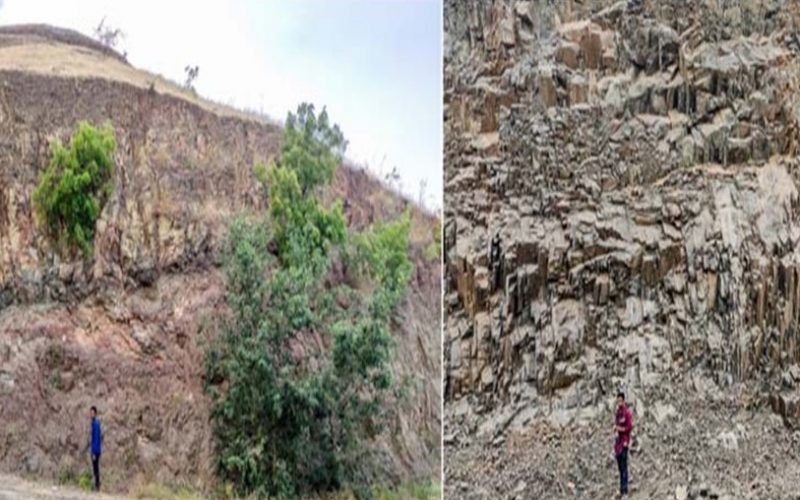
IIT Kharagpur discovers Isotopes in Fossil Trees from Deccan Trap Lavas that Indicate Wetter Future Due to Global Warming
Deccan Trap lava hills in Western Ghats (Left) and columnar basaltic lavas (Right) which erupted 66 million years back killing dinosaurs and most life on earth. A team of scientists from IIT Kharagpur and Academia Sinica, Taipei have indeed found evidence of triple oxygen isotopes of intertrappean fossil woods that led to very high annual rainfall during the catastrophic volcanism of Deccan trap that erupted in India about 66 million years back. The eruption drove a major mass extinction killing nearly 80% of all species of animals including the Dinosaurs. The depleted values of the oxygen isotopes suggest a…


